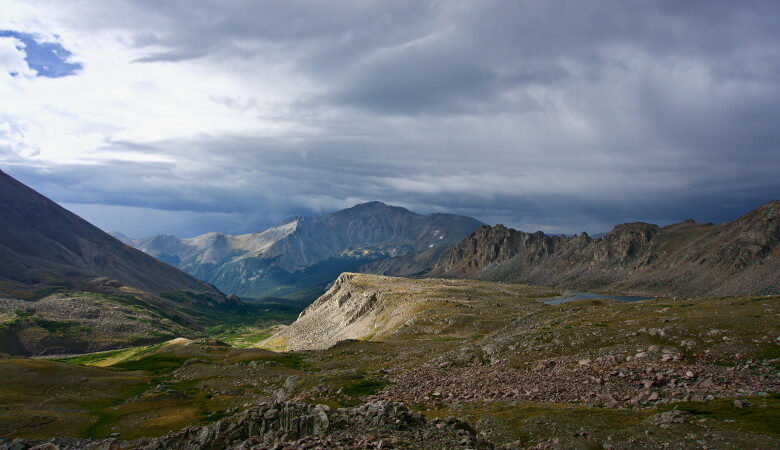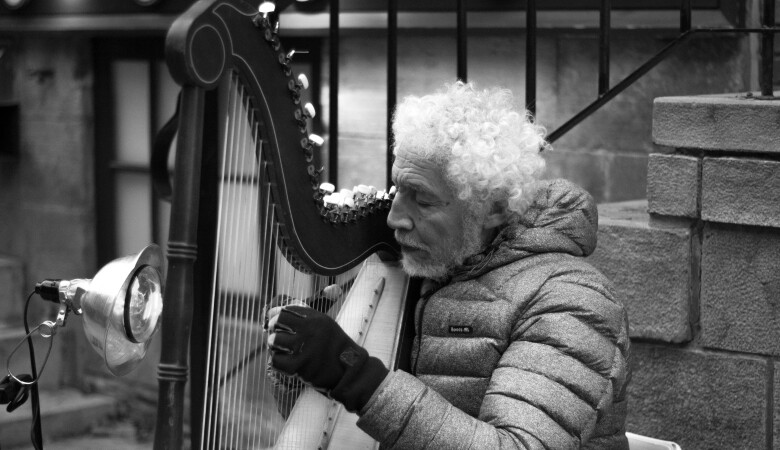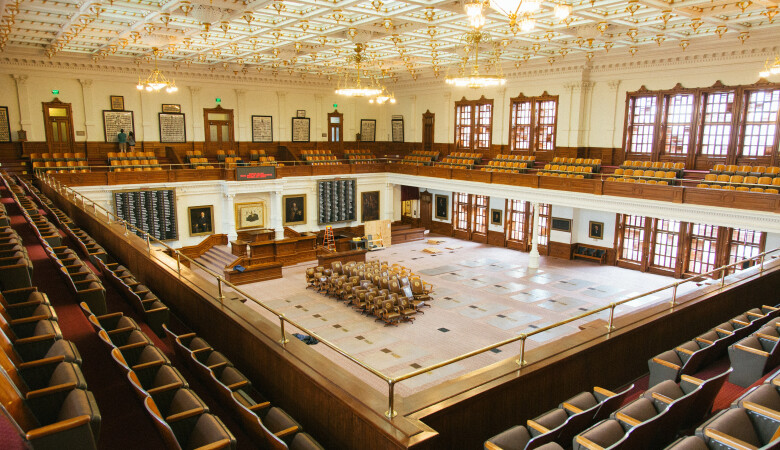The Lord Teaches Us to Pray: The Lord's Prayer, Part 1 (Matthew Sermon 16 of 151)
May 16, 1999 | Andy Davis
Matthew 6:7-15
Prayer
I. The Priority of Prayer
Three short years. That's how long Jesus ministered publicly on Earth— three years. Now think back in your own life to the last three years you've been alive, and the things you've accomplished. Now measure it against the accomplishments of Jesus Christ. In three short years, he changed the history of the world. That's less time than it takes to graduate from high school or from college. That's less time than it takes to really get to know a community, or to accomplish any one of a number of minor things in this world. Three years passes very quickly, doesn't it? But as I've thought about it, and specifically in relation to this topic this morning, what amazes me is that Jesus Christ, with so great a work to accomplish, in so short an amount of time, spent so much of it in prayer. Let me say that again, that Jesus Christ with so great a work to accomplish, in so short an amount of time spent so much of it in prayer. Could it be that Jesus thinks about prayer differently than we do? Could it be that he places a higher priority in prayer than we do? Prayer is God's way of saying, "Turn away from the infatuation, the love affair you have with your own accomplishments, your own energy, your own drive, and get on your knees and ask Me to do it." It's a way of becoming a spiritual beggar. Where you stay on your knees and say, "God, if you don't do it for me, it won't get done." We'll meet up with the same idea again in chapter 7 when Jesus says, "Ask and it will be given to you. Seek and you will find. Knock and the door will be opened to you. For everyone who asks receives. And he who seeks finds. And to him who knocks the door will be opened." So I think we need to learn about prayer, don't we? We need Jesus Christ to teach us about prayer. Most of us who've been walking with the Lord any length of time can tell you how difficult a healthy, strong prayer life is.
It's hard to pray. It's not easy. Sometimes you may feel foolish — there you are on your knees, talking to whom? If an unbeliever were to come and see you, they'd wonder what you were doing and what you were accomplishing there as you pray? But for us, perhaps, it goes a little bit deeper. We don't really know what we should pray for. We don't know how to pray. There was a time in Jesus's ministry when his disciples came to him and they saw him praying. I think they probably stood off a little distance and just waited till He was done. Maybe it took a while. Sometimes Jesus was all night in prayer. In Mark chapter 1, it says he got up a great while before dawn and prayed to his Heavenly Father. For all the things that he had to accomplish, Jesus did not one of them by himself, but he only did what the Father commanded him to do. I have the feeling that Jesus got his day's marching orders from the Heavenly Father in those prayer times, so he spent much time in prayer. The disciples who were observing him praying saw the fervency, the love, and the the power of Jesus's prayer.
Do you know what they said when he was done, they said, "Lord, teach us to pray. Teach us to pray,” as John taught his disciples to pray. Any good religious leader will do it. You can get all kinds of books on prayer, can't you? Go to the Christian bookstore and you can get books on prayer and many of them are very good. But wouldn't you rather learn from the Master, himself? It's my desire that by explaining these verses in Matthew 6, the Lord will be teaching you how to pray if that is your heart desire. If you come to Him and say, "God, teach me to pray." He may well direct you to this section in the Sermon on the Mount for here is His instruction on prayer. Now certainly, He gave other instructions in other places, but this is a model prayer he gave us when he said, "This, then, is how you should pray." Lord teach us to pray, and if that's your heart desire today, it is my prayer that God will use this scripture to instruct you.
Matthew 6: 5-15: "And when you pray, do not be like the hypocrites. For they love to pray standing in the synagogues and on the street corners to be seen by men. I tell you the truth they have received their reward in full. But when you pray, go into your room, close the door and pray to your Father who is unseen. And your Father who sees what is done in secret, will reward you. And when you pray, do not keep on babbling like pagans, for they think they'll be heard for their many words, do not be like them. For your Heavenly Father knows what you need before you ask Him. This then is how you should pray, "Our Father in Heaven, hallowed be your name. Your kingdom come, your will be done on Earth, as it is in heaven. Give us today our daily bread. Forgive us our debts as we also have forgiven our debtors. And lead us not into temptation, but deliver us from the evil one. For if you forgive men when they sin against you, your Heavenly Father will also forgive you. But if you do not forgive men their sins, your Father will not forgive your sins."
There's a great deal in this section on prayer. I've divided this sermon into two parts, we'll get the second section next week. I found with scripture, if that a scripture is very familiar to you, your mind shuts off. You think, "I don't have anything more to learn from the Lord's Prayer." And then when you pray it, what do you think you'll be doing? Babbling like pagans —just saying a bunch of words that don't mean anything. I found that between me and the scripture, sometimes there's this kind of veil that comes, a veil of familiarity. Familiarity breeds contempt you know. And I think, "I can't learn anything from this." I desire to tear that veil away today if that's occurred between you and this text because there's so much here. It's an amazing passage. The whole topic here is the incredible importance of prayer. Martin Lloyd Jones said, “Prayer is beyond question, the highest activity of the human soul. Man is at his greatest, when upon his knees he comes face to face with God." According to Martin Lloyd Jones, he thinks the greatest thing you can do on this Earth is get down on your knees and pray, and come face to face with God. I don't think Jesus would disagree.
Throughout Church history, the greatest saints, those that have accomplished the greatest things for God, have been men and women of prayer. That's a unified testimony of church history. That the people who did the most for God spent the most time in prayer. You've heard the story I'm sure of Martin Luther, when faced with a busy day, accomplishing all kinds of things, running the German Reformation, all kinds of people to meet, places to go, things to do, he said to an aide of his, he said, "I need to spend double my amount of time in prayer, I have such a busy day.” Is that your approach to prayer? Perhaps you go the other way, "I have to spend half the amount of time because I'm so busy today." That’s pride that says we can accomplish great things if we just get busy and work.
II. Overview of Chapter 6
I spoke earlier about Christian piety and how it is lived out in everyday life. And there were three issues, that of almsgiving or giving money to the poor which is love for you neighbor. Then there's the matter of prayer, that's your love for God and your relationship to God. And then there's that matter of fasting, self-control over your bodily desires and drives in this world. In all those things, the unified theme was, "Don't do it for earthly respect and honor. Don't do it so that people will see it and honor you, with the culmination being, 'Don't store up for yourselves treasures on Earth, where moth and rust destroy... Where moth and rust destroy, and where thieves break in and steal, but store for yourselves treasures in heaven, where moth and rust do not destroy, and where thieves do not break in and steal. For where your treasure is, there your heart will be also." Jesus is very concerned here to protect your treasure, your heavenly treasure. He does not want you to be hypocritical; he wants you to pray from a true heart. So, the first lesson that Jesus gives us here is the prayer must be without hypocrisy. God knows your motives. What's the point in praying for anything other than the desire to talk to your heavenly Father? Without that desire, it accomplishes nothing. So prayer should be without hypocrisy.
Then Jesus says that prayer should be without vain repetition, babbling like pagans. Look at verse 7, "When you pray, do not keep on babbling like pagans for they think they'll be heard for their many words." Now, is it true that pagans pray? Oh, absolutely. Prayer is actually kind of a unifying theme in all world religions; there's prayer in every religion. I So there must be an awful lot of vain praying — praying that is not according to the will of God or not to the true God— going on. One of the things Jesus says about pagans is that they love to heap up words; they love to babble and just go on and on. You saw this in Ephesus when the crowd there enraged by the Apostle Paul chanted for two hours, "Great is Artemis of the Ephesians. Great is Artemis of the Ephesians." It's like a form of brainwashing, over and over and over.
The Buddhists put prayers on prayer wheels and spin them around. They just spin them around and around, and with every turn, it's a prayer up to God. That is vanity, emptiness. What's interesting, though, is that some Muslim traders, some Spanish traders brought that practice to Medieval Spain, and it got inculcated in the life of the Roman Catholic Church in something called the Rosary. All it is, is a string of 10 beads in between each of where you say the “Hail Mary” and then guess what comes at the big bead? The Lord's Prayer, the most babbled prayer in the history of the Church. When you pray, don't keep babbling like pagans then saying the Pater Noster, which is ‘Our Father ‘in Latin, babbling it.
We need to understand what we're praying; we need to think. Prayer's an act of the mind. If you're just saying a prayer really quickly, then it accomplishes nothing. Or maybe you don't babble the Lord's Prayer, maybe you really do think carefully about everything you say. But maybe you babble other prayers, like the prayer right before dinner. It was always the same prayer every time. I won't say what it is, but maybe you have prayers like that. There shouldn't be this kind of babbling in prayer, there should be thought. You should think about what you're saying. You should think about to whom we’re talking. Jesus says that we shouldn't be like pagans, heaping up words endlessly. The matter is not really how many or how few words really, is it? Jesus had one prayer in John 12:28 that was only five words in the original. In John 12:28 Jesus said, "Father, glorify your name." That's a short prayer. "Father, glorify your name." He said a very brief prayer but then at other time ,as I already mentioned, he spent all night praying to God. What was He saying? All those words, so much communication going on between the Father and the Son. It really has nothing to do whether many or few words, it has to do with the heart. Are you praying with the mind, with understanding? Don't be like the pagans he says. Jesus says that you should understand who you're talking to and just how powerful He is. In verse 8 he says, "Do not be like them for your Father knows what you need before you ask Him."
Don't ever think that you're bringing some new information to God about your situation. "Oh God, you probably are just so busy running the universe that you haven't noticed, but I've got this little problem here. And I need to tell you about it, if you have time," this kind of thing. That's a limitation of God, He already knows. He knows what you need before you ask him. Jesus said, never suppose that you're cluing God in on something that he didn't know. Also never suppose that God is somehow standing between you and what's best for you like a wrestler or an adversary, and you need to get past God to what's best for you. That is a faulty view as well. The thought that God would be opposing what's best for you — it's not that way at all. Other people think that God's really just testing your faith and he's going to wrestle with you and struggle with you, and they use the image of Jacob wrestling with the angel, until you finally have enough faith. Well, that's not it either. Prayer is none of those things. Never think that you're trying to come in to God and persuade him to do something he doesn't really want to do. I've thought about this often. Take for example, if all of North Carolina were supplied with energy from a big nuclear power plant somewhere. And there was a control room of the nuclear power plant. It had all kinds of dials and gidgets and wizmos and everything, and buttons and lights and everything and all the nuclear reaction was controlled in that control room. Let's say the man who is in charge of that control room brought his six year old son in there and said, "Now son I want you to look at this room, this is a very powerful room. The control of all the energy for the entire state of North Carolina is right here. There's all kinds of dials, there's buttons, there's knobs, all kinds of exciting things. I'm gonna leave this in your charge for two hours. Do anything you want, anything at all. Turn any button, ignore the sirens, anything that... Don't worry about that, just do anything you want in this room. Flip the buttons, turn the dials. I'll be back in two hours to see how it's going."
Is that prayer? Do we come to God and say, "God would you just surrender some portion of your control of the universe to me for a while in this prayer time?" Do you think that's what God's doing? Absolutely not. We're not trying to persuade God to surrender control of the universe to us for a little while. We want to know what His will is. We want to be saturated with the presence of God. We want to pray according to His will and know what He wants. And so we see it later in the Lord's Prayer that ‘His will might be done on Earth as it is in heaven.’ We're not trying to persuade — that is a faulty views of prayer.
III. Prayer: Some General Thoughts
The “Lord’s Prayer” is really the “Model Prayer”
Let's look at the Lord's Prayer in general. First of all, I think that the Lord's Prayer itself is somewhat of a misnomer. The Lord did teach this prayer but the Lord could not pray this prayer. Why could the Lord Jesus Christ not pray this prayer? "Forgive us our debts as we have forgiven our debtors." Did Jesus have any debts, any sins to be forgiven from? No. This is not the Lord's Prayer; this is the disciple's prayer. This is something we pray. The Lord did teach it, but this is for us to pray.
I like to call it the Lord's “model prayer”, because it is a model prayer. When he says, "This then is how you should pray.", he's giving us a pattern of prayer. I think you should pray these words and pray them frequently. What I think you should do is unpack these word and put it in your own words but with the same concept, so that you understand, you're reflecting on it. But you should sometimes just pray it through with understanding, reverently, slowly perhaps. But this is a pattern prayer. It's an amazing economy of words here. There's only 57 words in the original language, 57 words, and yet the themes are comprehensive. It's remarkable everything that's covered in this. It takes only 22 seconds to read it in the King James version, and that includes the part at the end "Thine is the kingdom and the glory and the power." That part, we'll talk about that later. But only 22 seconds, a very, very brief prayer, reading it slowly. Pray it responsibly and slowly for it's a very short prayer. And yet, the themes are so deep and so rich. There's so much here as we will see in a moment.
We can divide up the prayer into three main sections. The first is addressing God properly, speaking properly to God. The second section are three petitions of God-centered worship. "Hallowed be your name. Your kingdom come and your will be done on Earth as it is in heaven." Three petitions of God-centered worship. Then come three petitions of human-centered needs — "Our daily bread, our sins, our temptations." We're going to discuss the second set of three petitions next week. We're going to look at the first two sections, addressing God properly and the petitions of God centered worship now. But notice that in the order, the logical order, God's glory, God's will, God's name comes first and our temporal needs come second. Do you think that's an accident? No. I think so much of our anxiety, our worry, our trouble in this world comes from reversing the order. Say, "Oh God, if you only knew, how am I going to pay my taxes?" Or, "My child is sick." Or, "I've got difficulties. God if you only knew." And God is saying, "If you only knew who you're talking to and the glory and the power that there is up here in heaven, you wouldn't be so anxious, you wouldn't be so distressed." So we need to reverse it. We need to come with God's glory first in our minds and our hearts. The glory of God comes first. Westminster Divine said, "The chief end of man is to glorify God and enjoy him forever." That's what we're created for, to glorify God. And Jesus understanding that, puts it first in the prayer.
The last introductory issue I'd like to bring up here is the need to pause before we pray. The need that I have before I pray, to stop for a minute. It's just like you wouldn't just drive right into an intersection, there's danger there. You need to realize where you are. It's not that there's danger in talking to God but there is one danger in that you become cavalier about your prayer life, you're not remembering to whom you are talking. When you're about to pray, just wait for a second or two . From Ecclesiastes 5: 1,2,7, it says, "Guard your steps when you go to the house of God. Go near to listen rather than to offer the sacrifice of fools who do not know that they do wrong. Do not be quick with your mouth. Do not be hasty in your heart to utter anything before God. God is in heaven and you are on Earth so let your words be few. Much dreaming in many words are meaningless therefore stand in awe of God." I love that. Don't rush into God's presence. Don't use lots of words but stand in awe of God. Remember to whom you are talking. Those are just some introductory thoughts.
Addressing God Properly
Let's get into the Lord's Prayer itself. The first section is the issue of addressing God properly, verse 9, "Our Father in heaven." You're used to the King James language, "Our Father who art in heaven." What ‘art’ means is, "Our father who is in heaven,”. This means that we should be thinking about who we're talking to. Jesus immediately says we've got to address God properly. God is a Father. We get to this great New Testament theme of the fatherhood of God. This was really I think very shocking to the first century Jews. The Jews when reading the law in their Torah would not even pronounce God's name. When they came to those four letters, Y-H-V-H that represents Yahweh —“ I am who I am” — they would not say it. Instead the Scribes had written in the letters, the consonants for the word "Adonai" which means, "my Lord". Later, English writers came and put the consonants together with the vowels and came up with the word “Jehovah”, a made-up word. It's the blending together of two Hebrew ideas, and it all came out of the respect the Jews had for the name of God. They would not say the name, Yahweh, so they said “Adonai” and from that we get the name, Jehovah.
But they had reverence for God. So the idea of God being a father very close to us or concerned about was shocking to them. How much more shocking when Jesus addressed him as “Abba”, the Aramaic word for “daddy”. The intimacy of this relationship is remarkable, and this is the same intimacy he's inviting us to right here, Jesus says. That's how we should talk to God — Our Father. In Romans 8, Paul invites us right into that Abba language when he says, "The spirit of sonship is in our hearts by which we cry out, Abba." Daddy. Ah, the incredible intimacy. It's shocking I think to the Jews, but it's what Jesus wants us to understand. Now, it's misunderstood, I think, by liberal theologians 100 years ago, who misunderstood what the fatherhood of God meant. They thought that it taught that there was a universal fatherhood of God — that God is the father of everyone. That is not biblical. God is the creator of everyone, but he's not the father of everyone. John 1:12 says, "To all who received Christ, to those who believe in his name, he gave the right to become children of God." It's not to everyone, it's to those who believe in Jesus Christ who are adopted into his family through faith in his name. Those are the children of God.
I quoted 1 John 3:1 earlier, "Behold. What manner of love the Father has given to us that we should be called children of God. And that is what we are. The reason the world does not know us is that it did not know him." There's a division in 1 John 3:1: There's us, we who are the children of God, and there's the world who does not know us." Not everyone is a child of God. Jesus says it very directly in John 8:42, speaking to his enemies. Never underestimate the boldness and the courage of Jesus Christ. He always told the truth. And what did he say to his enemies? He said, "If God were your father, you would love me. For I came from God." You are of your father who? The devil. Those are fighting words, aren't they? The Jews crucified him for that kind of truth telling. So not everyone is a child of God, only those who have faith in Jesus Christ.
This issue of the fatherhood of God recently has been fudged on by some evangelicals. There's some people printing Bibles and they're always trying to... Do you ever wonder why there's so many Bibles printed, so many editions? English I believe has more different translations of the scriptures than any other language. Is it because we're such a pious people? No, do you know what book sells number one year after year after year? It's the Bible because there's money in it. Do you know that Rupert Murdoch owns Zondervan? Rupert Murdoch, what's his interest in Zondervan? Money. There's always new translations of the Bible being made. We want to make them marketable, we want to make them appealing, and so we start to affect the honesty in translation. We no longer say, "Our Father in heaven” in a new translation but we would say, "Our parent in heaven." Now, why the change? So that we don't offend. There may be somebody offended by this idea of the fatherhood of God, so we're going to change it to “ our parent.” May I tell you there is a Greek word well known for parent and it's not used here. For example, "Children, obey your parents in the Lord" in Ephesians 6 but it's not here. Jesus chose the word Father. Do we have the right to come and say, "You know you may think of yourself as a Father but I'm going to think of you as a parent." God has the right to tell us what to say to him and he says, "Please call me Father. Call me Father." And so we must. It's just a matter of submission to Jesus Christ's authority into the scriptures. Part of the reason for that fudging, I believe, is because some fathers had done such a bad job of being fathers. Some of them have abandoned their responsibilities, they are bad fathers. Some fathers abandon their children to be raised entirely by their mothers, they just disappear. They're not there at all. And so what would that child think about a father? Certainly not anything very good. Some fathers are harsh and abusive toward the mothers or toward the children. Some fathers are cold and aloof and show no affection. Some fathers worship their careers, and they're seldom at home. These are bad fathers. Is God that kind of a father? Not at all. We need to let the scripture tell us what kind of father He is. He is gracious and compassionate, slow to anger, abounding in love and kindness. He is strong enough to protect you, to bring you back home. He's the father who runs and greets you while you're still way off, if you're a prodigal. Let God tell you what kind of father He is, but He is Father, our Father in heaven.
Notice it says, "Our Father," as opposed to what? My father. Can you say my father? Of course you can, but that's not the Lord's Prayer. "Our Father" kind of banishes that exclusivist feel. Me and Jesus, just me and God, we're alone, just the two of us. It's not that way. If you're a child of God, you're adopted into a big family, and you're going to be worshiping with them for all eternity. You're going to be together with them in heaven, so you should love them now. In 1 John 5 it says, "Everyone who loves the Father, loves the child as well." So we say, "Our Father." Alright, there's a collective. But notice that it says not just “our father.” God is intimate, he's concerned, he loves us, but He is our Father in Heaven. Ah, there's the exalted side of God, the powerful side. He is high and lifted up. He is exalted in heaven. And unlike, very much unlike the Jews of Jesus's day, we are too chummy with God. Our problem is not that we had a superstitious attitude toward the name of God so we wouldn't even pronounce it. No, we're too chummy with God. Some of the choruses, I've heard some, "He is a great, big, wonderful God." I heard a commentator D.A. Carson who talked about this, and said, "I never fail to think of a great, big, wonderful teddy bear." Is that the way God presents himself to us? Was that Moses's experience with God? Absolutely not. It says in Hebrews 12, "Our God is a consuming fire." We should worship Him acceptably with reverence and awe. He's exalted in heaven. Solomon said as we read earlier in Ecclesiastes, "We should guard our steps before we go in the house of God. We should think carefully who we're talking to. He's in heaven and we're on Earth, so let your words be few. Solomon stood at the dedication of the temple and said, "Heaven, even the highest heavens can't contain you. How much less this little house that I've built." This is an exalted view of God who lives in heaven. Therefore, He can handle any problem in your life. He's intimately concerned with you and He is in heaven and can handle anything. We need to have balance in this matter. We need to understand that God is intimately concerned and He does love us, but He's not our chum, He's not “the big guy upstairs.” That's disrespectful language. He is an Eternal Heavenly Father, exalted high above heaven. He can do anything, absolutely anything. That's the God we're praying to.
IV. Three Petitions of God-Centered Worship
1) Hallowed Be Your Name
Now we come to three petitions of adoration. The first is, I believe, the highest priority, that we should exalt God's name. It said, "Hallowed be your name." Maybe you're not so familiar with the word hallowed. Maybe you don't use it in everyday language. It's not a common word. It means to reverence the name as holy — to hold it in honor, to hold it in high esteem. What is it that we should be reverencing as holy? What should we hold in honor? The name of God. “May your name be held in honor, may your name be esteemed and reverenced.” That's how Jesus begins, that's the first petition. The name of God is the summing up of everything He's revealed to us about Himself, everything. So it began at the burning bush when Moses said, "What is your name?" And He said, “ ‘I Am’ is my name. I Am that I Am. I'm existent, self existent. No one created me, no one sustains me. I just Am. I always have been, I always will be. That's who I Am." Then God through the years, revealed other names to us. We have all these names; we use the word Jehovah: we say Jehovah Jireh, the Lord who provides, Jehovah Rapha, the Lord who heals, Jehovah Nissi, the Lord our banner. We use many names. This is the name of God. That name sums up everything we know about Him, sums up everything He's revealed. We should desire that that name be exalted here on Earth, that people understand who God truly is. We come to faith, we come to salvation through that name. John 1:12 says , “As many as believed in His name, He gave the right to become children of God."
After we believed in His name, what do we do? We call on His name. Romans 10:13 says, "Everyone who calls on the name of the Lord will be saved." Then what's the next step? We're baptized into His name — in the name of the Father and of the Son and the Holy Spirit. The name of God is our salvation, and may his name be held in honor. This was, I believe, the consuming passion of Jesus Christ, the name of God. He died for the Glory of God. "Father" In dying, he says, "I have brought you glory on Earth by completing the work You gave me to do." Everything Jesus did was to glorify the name of the Father. And so He said, "Father, glorify your name." God answered Him. God said, ”I have glorified it, and I will glorify it again." God is zealous for His name's sake. He does all things for the sake of His name. This is a prayer that God's name be exalted, or shall I say magnified. Psalm 34:3 says, "Magnify the Lord with me." What is a magnifying glass? Something that makes something look bigger, right? How do you magnify the Lord? Isn't the Lord infinite? Isn't the Lord exalted? How do you magnify Him? But it says, "Magnify Him." Get rid of small thoughts about God, and think great thoughts about God. Our God is too small in your mind and mine too, so let's magnify God together — let's enlarge Him. Galileo invented the telescope, when he looked at the moon did it make the moon any bigger? No, but it made it seem bigger to him, so the telescope magnified the moon to him, and we are to magnify the name of God here on this Earth. Magnify the name of the Lord. Oh God, may your name be exalted.
Notice also that this is a prayer to God that His name be hallowed or be exalted. The "be" in English is a passive, meaning that the subject is missing. Be exalted by whom? By people. Jesus is praying to the father that he would exalt His name in us. What control does God have over whether we exalt His name or not? Our control. He controls it by bringing us to salvation, through faith in His name, and then we begin, having been born again, to exalt His name. It's a prayer to God that His name be exalted.
2) Your Kingdom Come
Next is the advance and the consummation of the Kingdom, verse 10, "May your kingdom come?" Now what is the kingdom of God? A kingdom is a realm where a king reigns. Does God reign on Earth? Absolutely. He reigns over the entire Earth. The Earth is of the Lord's, in the fullness thereof. He does reign here. But that doesn't mean that the kingdom is everywhere on the Earth. Therefore I think that the kingdom is the place, if you can use that kind of word, the place where God is obeyed gladly. As the kingdom advances, there is an opposition from the kingdom of Satan. Satan fights against the advance of the kingdom of God. When it says, "May your kingdom come," it's means may Satan's kingdom be destroyed and may God's kingdom be exalted and established. There's a past, a present and a future aspect to the kingdom. The past came when Jesus first appeared. Jesus's first words in Matthew's Gospel were “Repent. Why should we repent? For the kingdom of Heaven is here. So the kingdom came when Jesus came the first time. When he did his miracles, it was a demonstration of the kingdom's power. He said, "If I drive out demons by the spirit of God then what? The kingdom of God has come upon you. And it's a kingdom that advances, and that brings us into the present sense of the coming of the kingdom. How does the kingdom come? It comes when it advances. Well, how does the kingdom advance? Jesus said, from the days of John the Baptist until now, ""The kingdom of Heaven has been forcefully advancing." (Matthew 11:12.) The kingdom is advancing. In Matthew 13:33, he said, "The kingdom of Heaven is like yeast, which a woman took and hid in a large amount of flour until it permeated the whole dough." How is it doing that? Through the preaching of the gospel through missions. “May Your Kingdom Come” is a missionary prayer, isn't it? May your kingdom spread from shore to shore, that your name may be exalted. There's also a future aspect to it as well. In Matthew 24, "Immediately after the distress of those days, the Sun will be dark and then the moon will not give its light. The stars will fall from the sky. And the heavenly bodies will be shaken. At that time the sign of the Son of Man will appear in the sky and all the nations will mourn. They will see the Son of Man coming in the clouds of the sky with power, and with great glory. And he will send his angels, and they will gather his elect from the four winds, from one end of the heavens to the other." That's the coming of the kingdom, isn't it? Don't you yearn for that day? The entire Bible ends with words about the future aspect of the kingdom. Revelation 22:20, “He who testifies to these things says, Don't you want to see Jesus? Aren't you tired of all this wickedness and sin in this world? Then you can pray in the Lord's Prayer, "Your kingdom come."
3) Your Will Be Done
The final petition in this section is, glad submission to the will of God. "May your will be done on Earth as it is in Heaven." Do you see the progression? We start with God's name being exalted by us, we see the kingdom coming gradually day by day, as we preach the gospel. Then finally, Jesus returns on that white horse and his name is on his thigh, "Faithful and true, King of kings and Lord of lords." That's the second coming. Then it says, "And then may your will be done on Earth as it is in Heaven." How is God's will done on Earth now? Jesus is King of kings and Lord of lords. Is he king of only good kings? Is he king only of Christian kings? No, he's king of all kings. He rules, he's in charge. And so all kings will do his will. But how do they do it? Do they do it grudgingly, ignorantly, kicking and screaming, fighting against it.? Is that how God's will is done in Heaven? No. In our family, as we train our children, we have a three part expression of what we expect from them when it comes to obedience. We want them to obey all the way, right away, with a happy spirit. That's how God's will is done in Heaven. It's done all the way, it's done right away, and it's done with a happy spirit. Think about the angels. Do they obey God all the way? Do they do every thing he tells them to do? Absolutely. And do they do it right away, or do they drag their feet a little when they get around to it, then they get to it, etcetera? No, they do it right away. As soon as He says, they go. As soon as the command comes, the angel moves. And do they do it well? "God, I'm not really sure about this. I think I have a better idea. I think what you ought to do is such and such. God, are you sure you want to do this?" Etcetera. "Oh, I don't like this." Do they clamor against this? No, they do it joyfully. Everything you do is right, God, for you are righteous and true and holy altogether. That's the way God's will is done in Heaven. Is that what you see around us here on Earth? Do you see it in your life? Do you obey God all the way, right away, with a happy spirit? Perhaps a good place to start is pray this prayer from your heart. "Oh God, may Your will be done in us as it is in Heaven." These are the first three petitions.: “Our Father in Heaven, hallowed be Your name, may Your Kingdom come, and may Your will be done, on Earth as it is in Heaven."






























